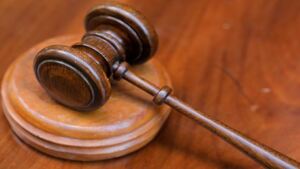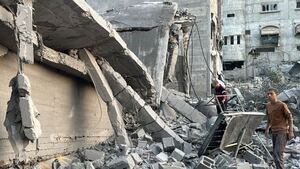Karua, a highly regarded Lawyer in East Africa, takes over from Kampala’s Lord Mayor Erias Lukwago, who remains part of the legal team. The team comprises around 50 lawyers from both Kenya and Uganda, including representatives from the Pan African Lawyers Union and international legal bodies.
Besigye, a prominent critic of Uganda’s President Yoweri Museveni, has been facing charges of illegal possession of firearms and other security-related offences. He has been in custody since November 20, alongside his co-accused, an individual named Lutali. The two are scheduled to appear before Uganda’s General Court Martial in Kampala on December 2 for a hearing, though the case remains in the preliminary stages.
In a recent conversation, Lukwago, who is also a part of Besigye’s legal team, explained how Karua's appointment came about. He revealed that Besigye and Karua share a longstanding friendship, built on mutual values of democracy, rule of law, and human rights. It was this close relationship that led Karua to offer her support to Besigye’s legal defence. Karua’s reputation as a skilled lawyer in Kenya, and across the African continent, made her an invaluable addition to the team.
Lukwago stressed that despite Karua’s new role, he and other legal team members, including 50 lawyers from both countries, remain actively involved in Besigye's case. The team, which also includes legal experts from various international legal institutions, is focused on ensuring Besigye receives a fair trial.
The charges against Besigye and Lutali are largely considered politically motivated by the opposition. They are accused of engaging in subversive activities against the government, including plotting attacks on government installations and meeting with individuals abroad to seek support for their cause. The allegations also include possession of firearms, which are deemed to be a monopoly of the Ugandan People’s Defence Forces (UPDF).
According to Lukwago, these charges appear to be based on events that took place outside Uganda, including in Athens and Geneva, raising questions about the legal grounds for such accusations. Ugandan law, as Lukwago pointed out, requires that criminal activities must occur within Uganda’s territory for them to be considered crimes. While there are exceptions for acts of treason or terrorism, the meeting of individuals abroad over political matters should not, in his view, constitute a criminal offence under Ugandan law.
A key issue for the defence is the lack of access to evidence. As Lukwago explained, the prosecution has yet to disclose the evidence it intends to use against Besigye and Lutali. Under Ugandan law, the defence is entitled to full disclosure of evidence, which is a fundamental part of ensuring a free and fair trial. The defence has demanded this disclosure, but so far, their requests have been ignored. Lukwago expressed concern that the prosecution’s lack of transparency could undermine the case.
Lukwago also spoke candidly about the difficulties of securing a fair trial in Uganda, especially within the military court system, which he described as a “kangaroo court.” He argued that the General Court Martial was initially designed to handle disciplinary cases involving military personnel, not civilians like Dr. Besigye, who retired from the army more than 20 years ago. Lukwago criticised the current regime for using military tribunals to target opposition figures, denying them the right to a fair trial under civilian courts.
The case of Besigye is not an isolated one. Lukwago highlighted the repeated arrests of Besigye, who has been detained over 1 000 times without ever being convicted of a crime. Many other opposition leaders in Uganda have faced similar treatment, with some disappearing without a trace, while others are coerced into pleading guilty to charges, they did not commit.
Looking ahead to the December 2 hearing, Lukwago explained that the defence team is awaiting a ruling on a criminal objection they raised, which could determine the next steps in the legal process. The state has indicated that its investigations are still ongoing, meaning the trial itself may not begin immediately. However, the defence is prepared to challenge the charges vigorously, both within Uganda’s courts and, if necessary, before regional and international legal bodies.
As the legal battle continues, there is growing international concern over the fairness of the proceedings and the treatment of opposition figures in Uganda. The appointment of Martha Karua as lead counsel is seen as a significant move in strengthening the legal fight for Besigye’s rights. However, the challenges ahead remain daunting, with the defence team determined to press on for justice despite the many obstacles they face.
--ChannelAfrica--













